Doctors Say You Shouldn’t Take These 8 Supplements Over 60

Once you hit 60, maintaining your health becomes increasingly important. Many older adults turn to dietary supplements to fill nutritional gaps or manage chronic conditions. However, recent studies have highlighted some risks associated with certain kinds and combinations.
For instance, research cited by the American Cancer Society states that some commonly used supplements may not provide the expected benefits and could even pose health risks for people over 60.
“In some cases, supplements can interact with common prescription medications,” says Leann Poston, MD, a licensed physician and health advisor for Invigor Medical. In other cases, there’s a risk of having too much of a “healthy” vitamin for your body. These factors can pose a serious health risk to you if you’re not careful and informed.
Here, Dr. Poston and other doctors are weighing in on the most up-to-date science behind supplements and which ones you shouldn’t take if you’re over the age of 60.
RELATED: The 7 Most Overrated Supplements, According to Doctors
1
St. John’s Wort
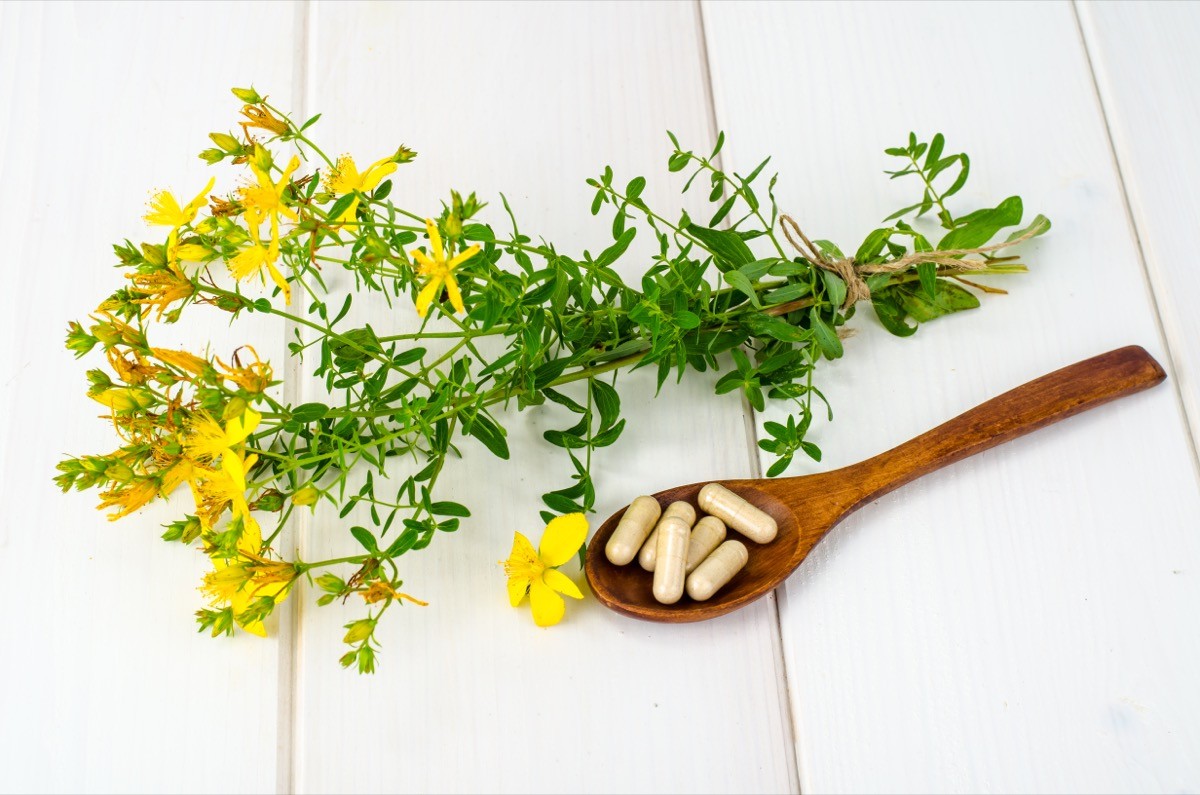
Some people turn to St. John’s wort as a natural way to treat mild depression, according to the Mayo Clinic. But doctors warn its active ingredient, hyperforin, can sometimes cause problems when taken with other medications.
“St. John’s wort can interact with statins, blood thinners like warfarin, antidepressants, migraine medications, and digoxin, which is prescribed for heart failure,” says Patricia Pinto-Garcia, MD, MPH, senior medical editor at GoodRx.
2
Vitamin E
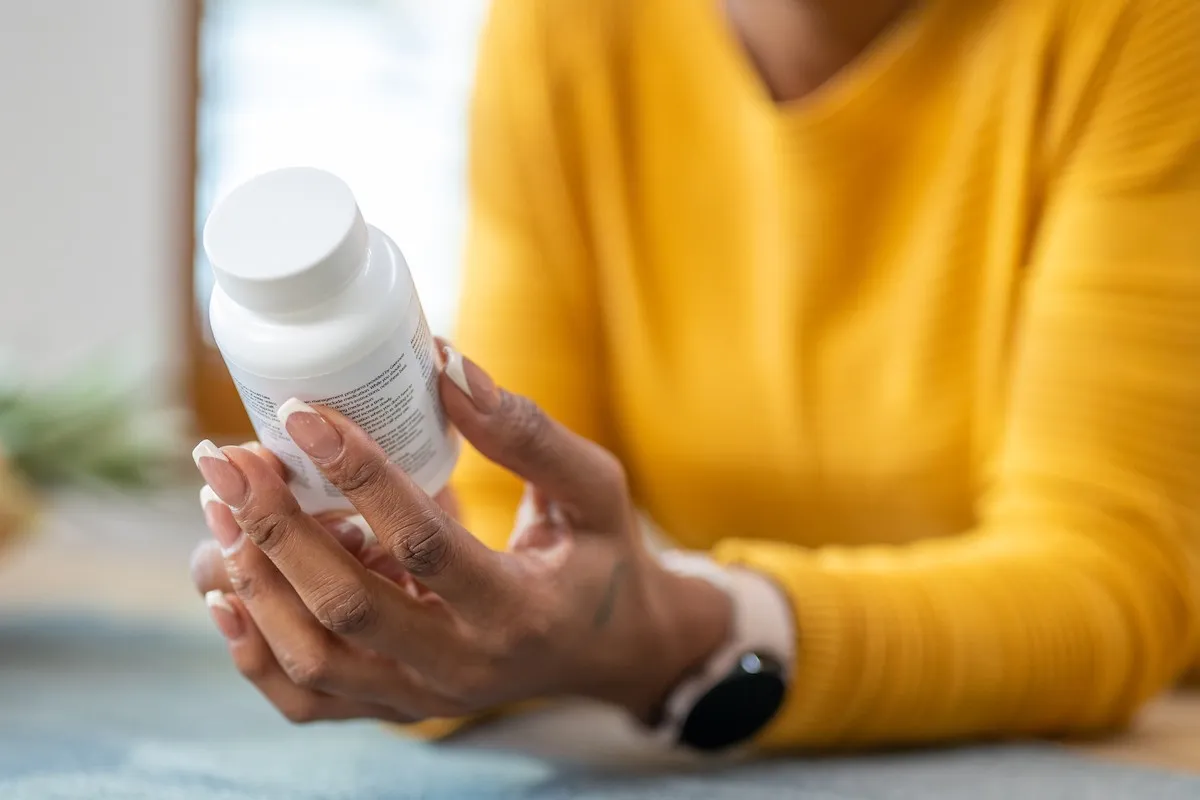
When it comes to boosting your immune system, you may want turn to vitamin E supplements. But, the vitamin can interact with certain medications.
“Vitamin E (tocopherols and tocotrienols) is an antioxidant that also prevents the aggregation of platelets, which can lead to an increased risk of bleeding,” Sarah Trahan, NMD, staff physician at Sonoran University, says. “If you are on certain medications, such as aspirin, Coumadin, and Eliquis, or have certain conditions, such as malabsorption diseases, you are at higher risk of internal bleeding.”
RELATED: 12 Supplements You Should Never Take Together, Medical Experts Say
3
Ginseng
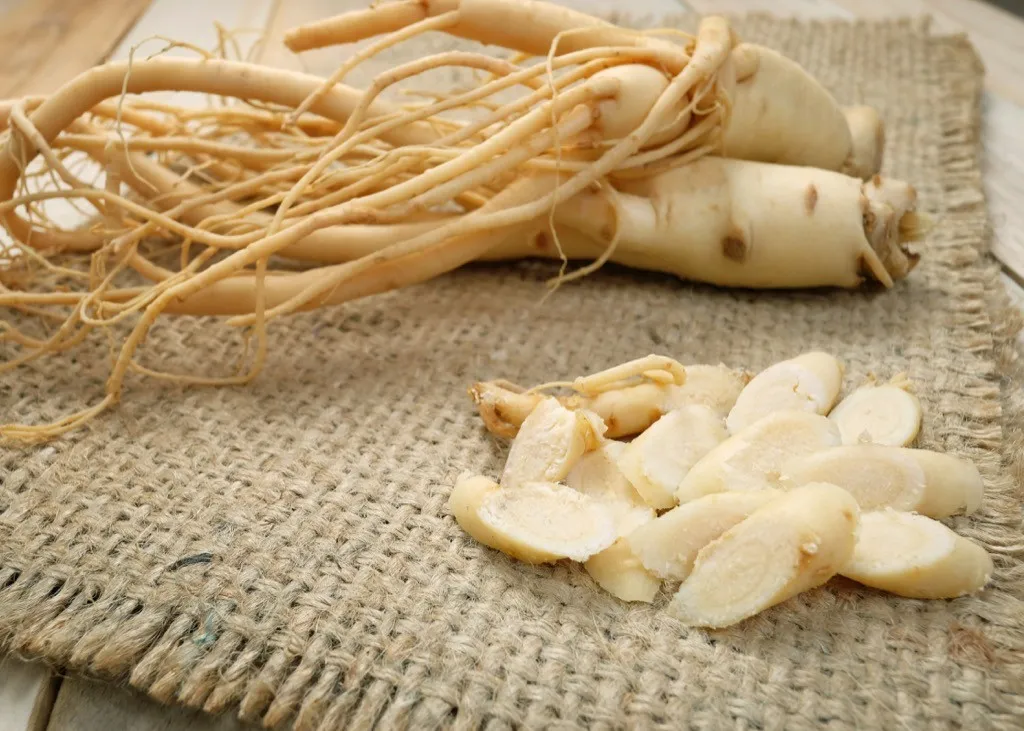
Supplements derived from natural sources, such as ginseng, may seem like a safe option. But, depending on your existing health issues, you might want to reconsider them once you reach your 60th birthday.
“Ginseng has been used for thousands of years to help support memory and immune health, but it interferes with diabetes medications and can potentially reduce blood sugar levels,” says Pinto-Garcia.
4
Magnesium

Magnesium has become a super-popular supplement because of its purported health benefits. These include helping control blood pressure, improving sleep, aiding with bowel regularity, and boosting mood, according to Healthline. But some doctors say seniors should reconsider having it in your lineup.
“Excess magnesium can cause changes in potassium and sodium levels and affect how the heart beats,” says Dr. Poston. “The risk is higher for people whose kidneys do not work well.”
Plus, magnesium supplements can interact with medications like bisphosphonates, antibiotics, diuretics, and proton pump inhibitors, according to the NIH.
RELATED: 7 Surprising Benefits of Taking Magnesium Every Day
5
Ginkgo Biloba

Despite there being inconclusive evidence on its effectiveness, many adults still turn to ginkgo biloba supplements to help boost their cognitive health, per the Mayo Clinic. However, this is problematic for people taking certain medicines.
“While many take it for memory improvement, ginkgo biloba could increase bleeding risk—especially for those on blood thinners or with bleeding problems,” says Beata Rydyger, a registered nutritionist in Los Angeles. “It might also not mix well with antidepressants and diabetes medication.”
If you’re looking for another habit to support your brain health, Rydyger suggests eating foods high in antioxidants, such as berries and leafy greens.
6
Turmeric
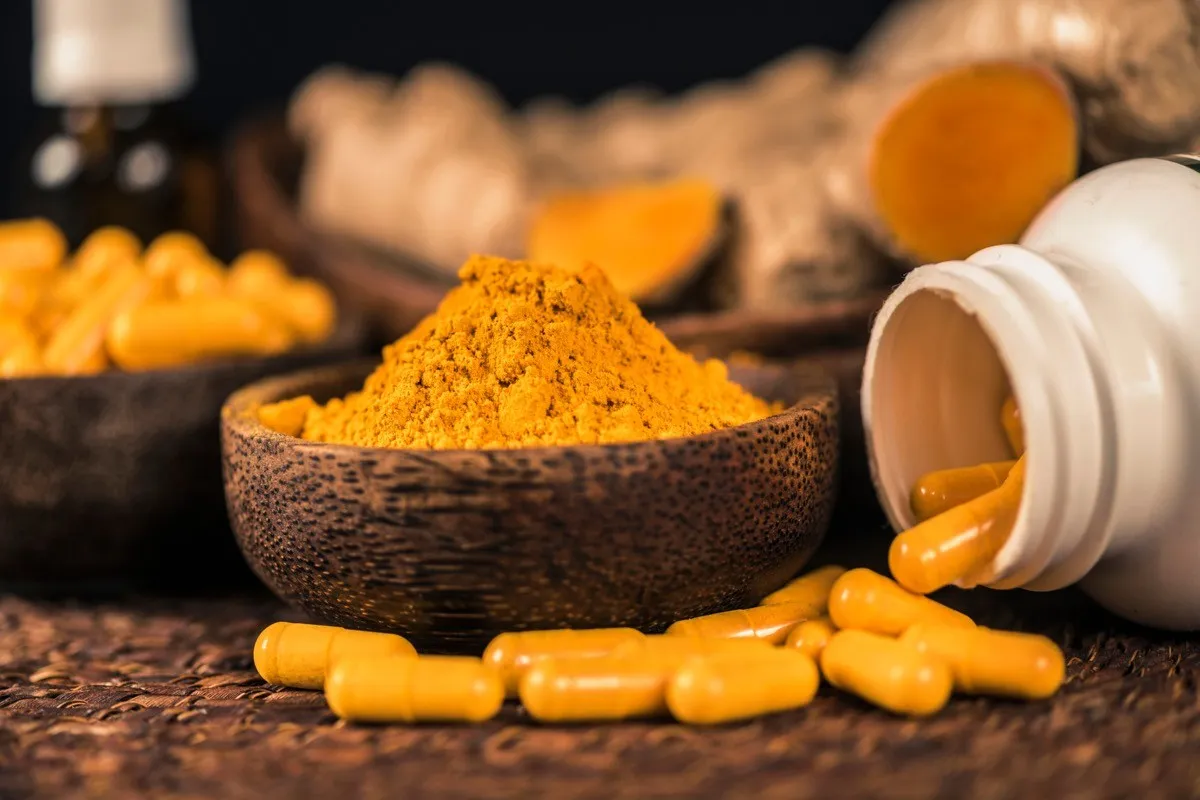
Turmeric is a great spice rack staple and an increasingly popular supplement for its anti-inflammatory benefits. However, experts point out that it can create a dangerous interaction with certain drugs.
“Turmeric can negatively interfere with certain medications like iron, decreasing its absorption,” says Lindsay Scaringella, a registered dietician and licensed nutritionist at CareOne. “It’s also a blood thinner, so taking other blood thinning medications with turmeric can cause bleeding or bruising.”
RELATED: 7 Surprising Benefits of Taking Turmeric
7
Vitamin A
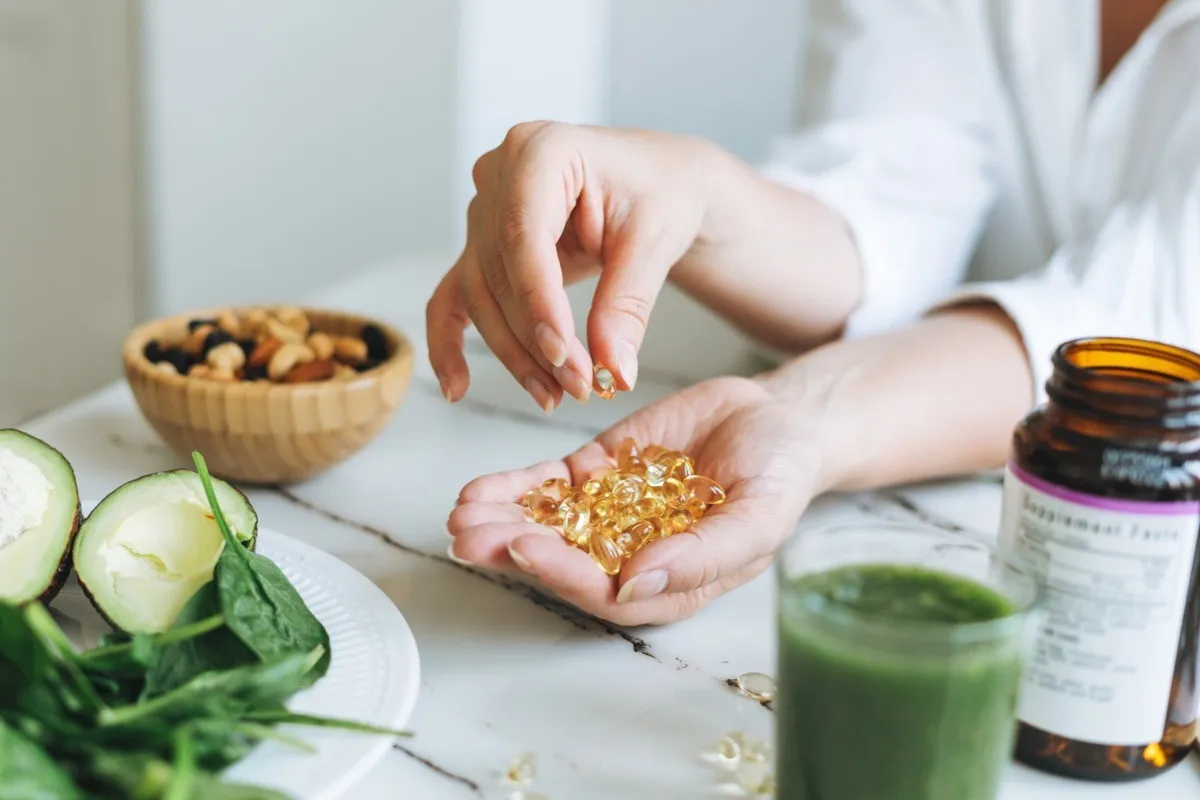
Vitamin A is a nutrient that helps support growth, vision, and cell function. It’s also called retinol or retinoic acid, according to the Mayo Clinic, and can help protect your body’s cells from damaging free radicals.
However, too much vitamin A can be a bad thing. “Retinol is the form of vitamin A that causes the greatest concern for toxicity,” according to experts at Colorado State University. “If you take a multivitamin, check the label to be sure the majority of vitamin A provided is in the form of beta-carotene, which appears to be safe.”
If you’re over 60, too much vitamin A can increase the risk of osteoporosis, AKA bone loss, and liver damage.
“Symptoms of vitamin A toxicity include dry, itchy skin, headache, nausea, and loss of appetite,” Colorado State University says. “Signs of severe overuse over a short period of time include dizziness, blurred vision, and slowed growth.”
8
Vitamin D

According to the Centers for Disease Control and Prevention (CDC), one in three adults over the age of 59 take vitamin D. However, recent research has debunked the myth that the supplement can prevent bone fractures. While vitamin D does promote bone health and muscle function, it can’t put a stop to accidental trips and falls, which could lead to broken bones.
That said, vitamin D is still vital, and whether you get it from the sun, foods, or supplements, the International Osteoporosis Foundation recommends 800-1000 IU/day of vitamin D for older adults to support muscle and bone strength.
But, be careful not to go beyond that. Excessive doses of vitamin D can increase your calcium levels, upping your risk of developing kidney stones and other kidney issues.
What’s more, vitamin D is known to interact with a lot of different medications. Check out the full list (it’s long) and talk to your doctor for personalized recommendations.